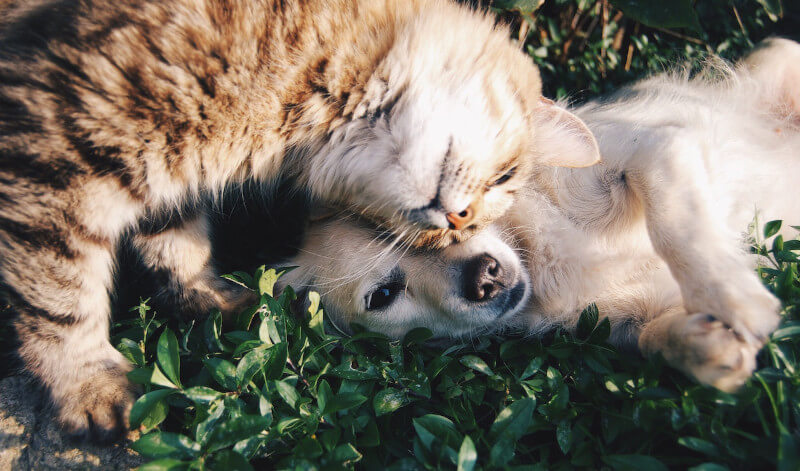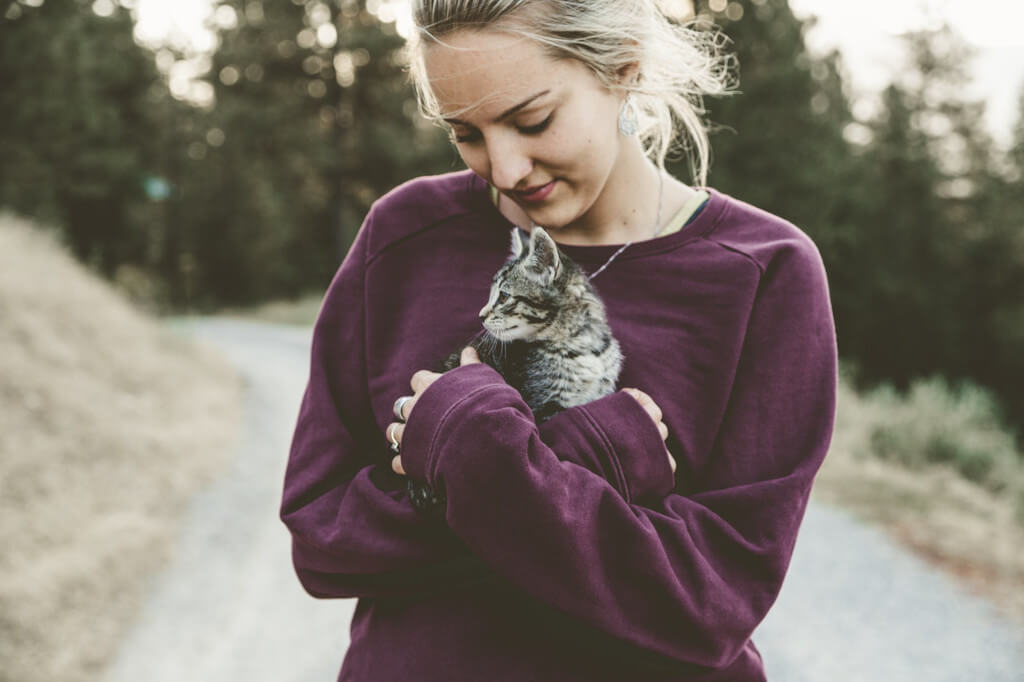Your animals love one another just as much as you love them, and if you have ever seen two of your kitties snuggle up together in front of a sunny window or your dogs chase each other around in your back garden, there’s no question in your mind that this is the case. N ow there is scientific evidence to support it.
You are clearly a pet lover, and as such, you have absolutely no doubt in your mind that your pets feel loved…, particularly for you! You are the only one who provides care and nourishment for them, so it makes sense that they would love you. On the other hand, people frequently commit the error of equating human feelings to the actions of animals, without taking into account the possibility that animals’ actions are driven purely by intuition rather than by emotions. We turned to scientific research to determine once and for all whether or not animals are capable of feeling the love.
The Hormone of Affection
Oxytocin, also known as the “love hormone,” is one of the numerous chemical compounds that influence how and what we feel; however, it is among the most potent of these chemicals. Oxytocin is also known as the attachment hormone, and its production is at its peak during childbirth. This is done not only to alleviate the discomfort that comes with childbirth but also to strengthen the relationship between the child and mother and guarantee the continuation of the species.
Oxytocin is also produced in the bloodstream when we interact with other people, whether it be romantically, consensually, or in interspecies friendships (for example, when we develop a relationship with our animals). A research study carried out in Japan in 2015 by several different universities came to the conclusion that when dogs and their owners stared at each other, not only did their oxytocin levels significantly rise, but the length of time that they gazed at one another decided how much their oxytocin levels climbed.
In the control study, the people who brought up the wolves and the wolves gazed at each other, but this did not produce a significant amount of the hormone that is associated with romantic love. It is believed that domestication is mainly accountable for dogs’ capacity to communicate and bond with humans, the impact of which is mutually advantageous: we absolutely adore our animals and they love us, and that is sufficient enough to ensure that we will both continue to exist.
By the way, and this isn’t completely untypical of felines, cats in research situations demonstrated a somewhat more complicated display of love towards their humans than dogs did. Additionally, cats’ oxytocin levels did not increase as much as dogs’ levels did; however, cat owners can possibly attest to this behavior being fairly standard for cats. You are aware that your cat loves you, and this is the only thing that should concern you.
How Nuanced is the Love That Your Dog Has for You?
The wiring of a dog’s brain is analogous to that of a human’s, and dogs and humans are both subject to the same hormonal factors that influence our feelings and behaviors. They do love, they do get angry, they do feel fear, and they do experience happiness and joy but their spectrum of feelings is much narrower than that of humans. According to Dr. Stanley Coren, a teacher, psychologist, researcher, and animal behaviorist, a dog that is six months old has the same emotional maturity as a child who is two and a half years old, but this is the limit of the dog’s emotional development.

Dogs do not go on to establish more complicated feelings such as remorse, jealousy, or shame; the response you see when you are holding up a gnawed pair of shoes and pointing at them is simply fear. Your dog is terrified of you because he believes that you are going to punish him for something, but he has no idea that he has done anything wrong (shame or embarrassment). All he is aware of is that your frightening anger is aimed at him.
However, love is a complicated feeling, doesn’t it? To be honest, no. Chemically speaking, when you are in the presence of someone you love who loves you in return, you experience feelings of warmth, safety, and ease. Simply being in their company makes you feel better, which makes you want to be with them as much as possible. Feel familiar? Take a look at how well-behaved your child is right now. Is he showing off his wagging tail? And you have the widest grin on your face I’ve ever seen! You two do love each other very much, that much is clear.
Do Cats and Dogs Have Affection for One Another?
Anecdotal proof indicates that dogs can establish strong bonds with other dogs, dogs and cats can create connections, and cats can create connections with other cats. It’s possible that these friendships were formed during the crucial early stages of a pet’s process of becoming socialized; the animals may have recognized in one another a kindred spirit, and after sharing a positive experience with one another, they became inseparable companions. When these bonds have been formed, oxytocin is the culprit once again, and when the animals are kept separate from their beloved, they miss them, pine for them to return, and demonstrate anguish in their absence.

Unforeseen interspecies connections (such as those between a cat and a bird, a dog, and a rat, or a rabbit and a cat, to name just a few of the many possible examples) are formed based on the same concept: because oxytocin makes them happy when they exist together, they engage in behavior that continues the production of oxytocin. To conclude, yes, our furry friends experience love. Even though scientific evidence might be required to prove it, all you need to do to believe it is look at your scaly or hairy companion and acknowledge the emotions it evokes in you.

